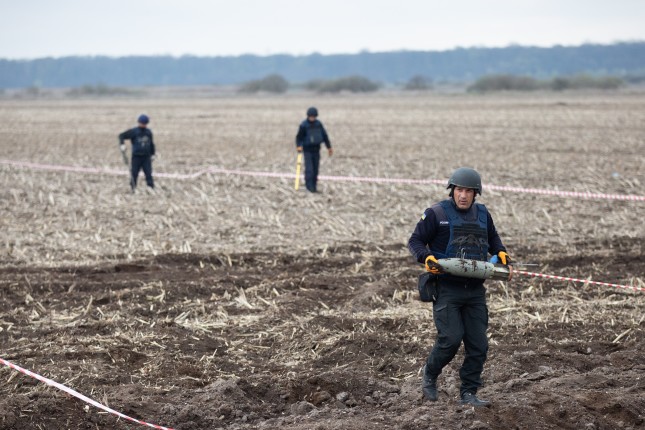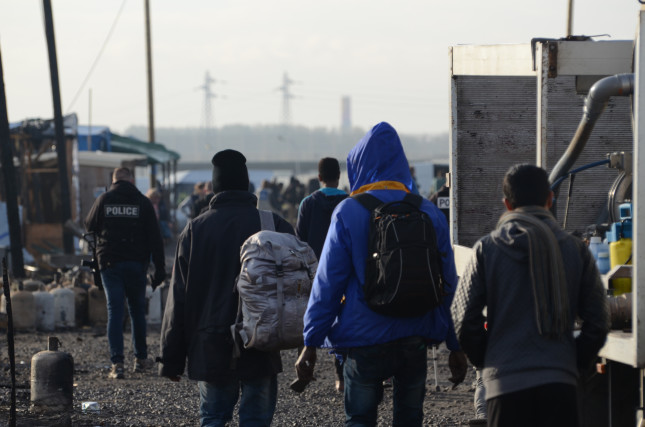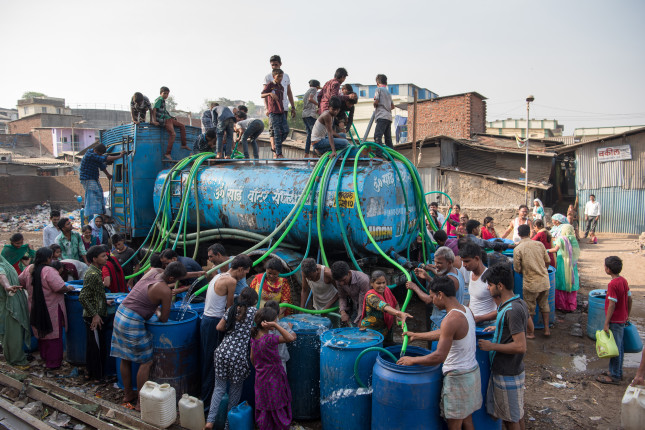-
Ukraine’s Environment Is a Victim of Russian Geopolitics. (Again.)
›
Senior Western officials have received “sobering” reports on the counteroffensive in Ukraine. As both sides continue to rain artillery shells and missiles across the country, Ukrainian forces have struggled to make progress on the front lines in both the south and the east.
Meanwhile, a different but related struggle is occurring across the country. Ukraine’s environment is being poisoned by the by-products of this war; polluting the land, water, and air, and exposing humans, plants, and animals to high levels of toxins.
-
ECSP Weekly Watch | August 28 – September 1
›
A window into what we are reading at the Wilson Center’s Environmental Change and Security Program
Carbon Markets: One Sheikh’s Interest in Africa’s Resources
Why has a company in the United Arab Emirates (UAE) taken an interest in Africa’s forests? Sheikh Ahmed Dalmook Al Maktoum ‘s company, Blue Carbon, recently initiated deals with several countries (Liberia, Tanzania, Zambia, and Zimbabwe) that exchange management of African forests in these nations for carbon credits.
-
“You Will Find Your People Here” with Dr. Caroline Wanjiku Kihato and Clare Loveday
› On today’s episode of New Security Broadcast, ECSP Director Lauren Risi and Distinguished Fellow Dr. Blair Ruble talk with Clare Loveday and Dr. Caroline Wanjiku Kihato about their collaborative installation, “You Will Find Your People Here,” currently on view at La Biennale di Venezia. Loveday is a Johannesburg-based composer, and Kihato is an urban sociologist who specializes in gender, migration, and governance; they worked in concert with pianist, Mareli Stolp, and Ghanian artist, Awo Tsegah, to bring the installation to life at the Biennale.
On today’s episode of New Security Broadcast, ECSP Director Lauren Risi and Distinguished Fellow Dr. Blair Ruble talk with Clare Loveday and Dr. Caroline Wanjiku Kihato about their collaborative installation, “You Will Find Your People Here,” currently on view at La Biennale di Venezia. Loveday is a Johannesburg-based composer, and Kihato is an urban sociologist who specializes in gender, migration, and governance; they worked in concert with pianist, Mareli Stolp, and Ghanian artist, Awo Tsegah, to bring the installation to life at the Biennale. -
Competing Imperatives? Migration and the African Continental Free Trade Area
›
African informal migration to Europe raises human insecurity issues for states in both Africa and Europe. This challenge was underscored almost a decade ago by the arrival of about a million migrants and refugees on the shores of Europe.
-
ECSP Weekly Watch | August 21 – 25
›
A window into what we are reading at the Wilson Center’s Environmental Change and Security Program
Deforestation Dynamics in Colombia: The Role of Armed Groups
A 29% drop in deforestation in Colombia in 2022 was labeled as a victory for President Gustavo Petro. Yet there is another reason behind the decrease. Armed groups, such as the Estado Mayor Central (EMC), have imposed logging bans in areas under their control, and levy fines amounting to 251 dollars per hectare.
-
Q&A: Dr. Jeff Colgan on the Energy Security Impacts of Russia’s War in Ukraine
›
Dr. Jeff Colgan is Director of the Climate Solutions Lab at the Watson Institute for Public and International Affairs at Brown University, and a keen observer of the interplay between energy and security. His new white paper, “Letting Europe’s Energy Crisis Go to Waste: The Ukraine War’s Massive Fossil Fuel Costs Fail to Accelerate Renewables,” co-authored by Alexander S. Gard-Murray and Miriam Hinthorn, offers a new window into how an event with the broad potential to reshape energy policy to more sustainable ends has failed to meet the moment. Colgan spoke to us about the institute’s new research and the lessons learned about conflict’s influence on the energy transition more than a year into the Ukraine conflict.
-
ECSP Weekly Watch | August 14 – 18
›
A window into what we are reading at the Wilson Center’s Environmental Change and Security Program
Thirst for Relief: Prolonged Drought Intensifies Afghanistan’s Humanitarian Crisis
Afghanistan is the world’s sixth most affected country by climate-related threats—and its present acute challenge is water scarcity, intensified by climate change. The country is heavily reliant on agriculture, which makes up a third of its GDP.
-
Tanker Water Markets: A Path to Achieving SDG 6
›
Nearly two-thirds of the world’s population experiences some level of water scarcity—and an estimated one billion urban residents face unreliable drinking water supplies. This global water crisis not only has been recognized by the United Nations, but also prioritized for action as Sustainable Development Goal (SDG) 6: “Access to Water and Sanitation for All”.
Showing posts from category risk and resilience.



 On today’s episode of New Security Broadcast, ECSP Director Lauren Risi and Distinguished Fellow Dr. Blair Ruble talk with Clare Loveday and Dr. Caroline Wanjiku Kihato about their collaborative installation, “
On today’s episode of New Security Broadcast, ECSP Director Lauren Risi and Distinguished Fellow Dr. Blair Ruble talk with Clare Loveday and Dr. Caroline Wanjiku Kihato about their collaborative installation, “




